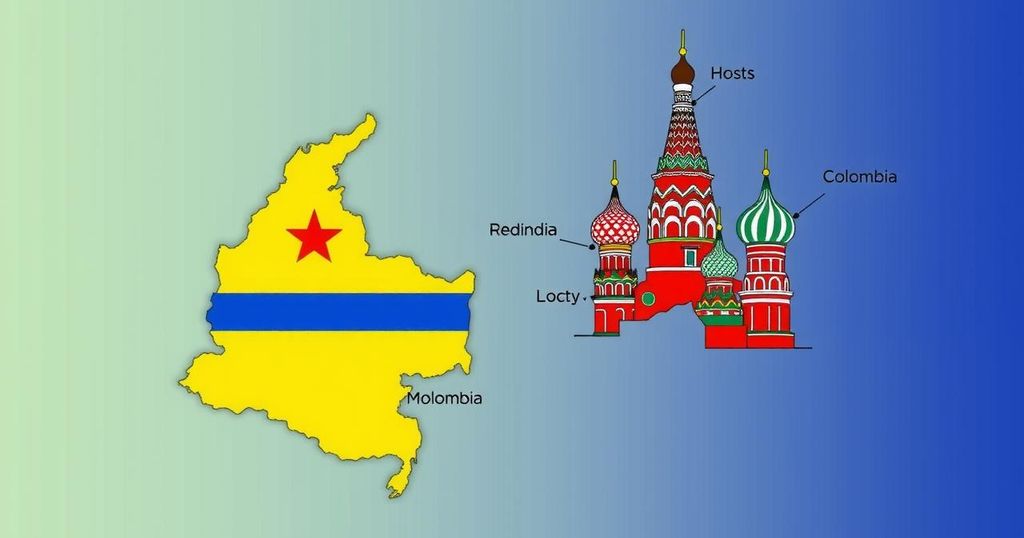Colombia is pursuing BRICS membership to expand international alliances and funding opportunities. Foreign Minister Luis Gilberto Murillo’s recent Moscow visit aimed to strengthen ties with Russia, preparing for the 90th anniversary of diplomatic relations in 2025. The talks included cooperation on trade, cultural exchanges, and geopolitical issues, including mediation in conflicts.
Colombia has signaled its interest in becoming a member of the BRICS group, which consists of Brazil, Russia, India, China, and South Africa, as part of its strategy to broaden international alliances and secure new sources of funding. This initiative was announced by Foreign Minister Luis Gilberto Murillo during his recent visit to Moscow, where he also engaged in discussions with the BRICS New Development Bank, presided over by former Brazilian President Dilma Rousseff. Amid efforts to rejuvenate its relationship with Russia, which is set to celebrate the 90th anniversary of diplomatic ties with Colombia in 2025, Minister Murillo’s visit included dialogues about enhancing bilateral cooperation. Russian Foreign Minister Sergey Lavrov noted that both nations plan to revive a bilateral commission focused on trade, economic, and scientific collaboration. The two sides also explored avenues for cultural and academic exchanges, culminating in Murillo receiving the title of Emeritus Professor from a Russian institution. The Kremlin expressed optimism regarding Colombia’s partnership potential, stating, “Colombia is a promising partner for Russia in Latin America. The two countries’ relations are based on traditional friendship and cooperation, mutual trust and respect.” This statement underscores the significance of the diplomatic ties between Colombia and Russia as they prepare to commemorate this milestone. Significantly, the discussions were not limited to bilateral interests; global geopolitical matters, including the conflicts in Ukraine and the Middle East, were also scrutinized. Minister Murillo reiterated Colombia’s readiness to mediate in the Russia-Ukraine conflict, advocating for political dialogue as a means to peace. He emphasized, “We invite [Russia and Ukraine] to resolve this in political and diplomatic dialogues, to talk about peace. […] Bogotá is ready to contribute insofar as they request it.” In a separate context, Ukrainian President Volodymyr Zelenskiy criticized Colombia’s absence from a recent peace summit in Switzerland, expressing disappointment in the Colombian leadership for not participating in the effort to restore justice in the region.
The BRICS group has emerged as a significant player in global economics and geopolitics, representing a platform for emerging economies to collaborate on various issues, including finance and sustainable development. Colombia’s interest in joining BRICS reflects its ambition to expand its international influence and seek alternative funding mechanisms, particularly through partnerships such as the BRICS New Development Bank. Additionally, the warming of ties with Russia marks a pivotal shift in Colombia’s foreign relations, aiming to foster a broader strategic cooperation that encompasses trade, cultural exchange, and political mediation in global conflicts.
In summary, Colombia is actively pursuing BRICS membership as part of its foreign policy goals, aiming to strengthen its global alliances and economic partnerships. The visit to Moscow by Foreign Minister Murillo not only seeks to enhance bilateral ties with Russia but also positions Colombia as a potential mediator in international disputes. The discussions underscore the mutual commitment to deepen cooperation while addressing significant geopolitical challenges, such as the ongoing conflicts in Ukraine and climate issues.
Original Source: www.intellinews.com






